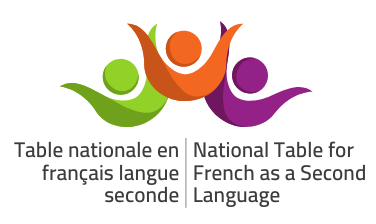Project Overview
- Research topics
- Region: West
- Project Overview

Project status
- Completed :
- April 2021-March 2023
Project manager or
resource person
- Duncan McIndoe
- French Teacher Recruitment and Retention Coordinator, Bureau de l’éducation en français
British Columbia Ministry of Education and Child Care
British Columbia Provincial French Teacher Recruitment and Retention Strategy in Minority French Language Schools and in French Immersion and Second-Language Programs
British Columbia (BC) school districts need to respond to the increased demand for French educators in the province, in both French minority languages (FML) and second French language (FSL) programs. Enrolment in French programs has outpaced the supply of French teachers graduating from post-secondary programs, leading to issues of program accessibility as students are turned down every year from French programs because of a shortage of qualified French teachers.
BC’s strategy aimed to tackle these issues by focusing on three main areas:
1. Promotion and recruitment;
2. Enhancement of teacher education programs and
3. Support for continuous education and professional development for current teachers.
The implementation of the strategy took place over the 2020–2021 to 2022–2023 fiscal years, with multiple partners involved in its delivery.
From recruitment to professional development, the project offered opportunities to people at all stages of their career as French-language educators: future candidates, current students at a post-secondary institution, new teachers, and experienced teachers. The following initiatives included FSL teachers:
Initiative A: Integrated French teacher recruitment campaign
Initiative B: Continued enhancement of French teacher education programs (FLM and FSL)
Initiative C: Post-secondary led teacher recruitment and retention supports
Initiative D: Decreased turnover of teaching staff in French first-language schools (Please Note: this project overview only describes FLS initiatives A, B, C and E).
Initiative E: French immersion Teacher Mentorship Initiative
Initiative A focused on the launch of an integrated recruitment campaign that utilized a variety of marketing and communications tactics, including online advertising, social media marketing, database marketing, and candidate outreach. There was a focus on marketing employers as attractive workplaces, highlighting communities in BC and promoting teaching opportunities to early career and experienced teachers across Canada.
Initiative B involved implementing a decentralized teacher education program to make teacher education accessible to more candidates. It aimed to increase the number of French teachers trained in BC and ensured they were highly qualified to work in the education system. By expanding French teacher training programs at various provincial post-secondary institutions, 22 additional places per year would be offered to new students interested in becoming French teachers. Having more BC trained and certified FSL and FML teachers represents a crucial element of the overall response to the increased demand in French education programs.
Initiative C supported BC post-secondary institutions’ efforts around recruitment and retention by providing resources for school districts to assess the needs of in-service French teachers and by offering professional development workshops for in-service French teachers. This initiative would also develop and implement an Educational Administration and Leadership certification program for in-service French teachers to decentralize teacher education practicums.
Initiative E paired new and experienced French immersion teachers to facilitate knowledge-sharing, guidance, and coaching in their common work environments through workshops, resource and knowledge sharing, and online activities. Managed by the University of Victoria, this initiative delivered a teacher mentorship program to build strong peer mentoring relationships, contributing to strengthening collaboration and innovation within French immersion teaching communities. In addition to developing a stronger sense of self-efficacy among FSL teachers and lowering the rate of turnover, the University of Victoria gathered, analyzed, and disseminated research and evaluation data from the pilot program to inform the development and implementation of province-wide mentorship practice specific to FSL teachers.
Targeted Results
Main takeaways (learnings)
- Recruitment and retention needs are growing in scope (demand for programs, not enough teachers to meet training demands).
Potential/desired collaborations
- To learn from each other.
- For support from each other (Ex.: challenges).
- To situate BC within trends.
- To have a better sense of how many teachers are being produced per province as a benchmark.
- For staffing needs
- For growth and popularity of programs (how to make French immersion sustainable in terms of demand, etc.)

